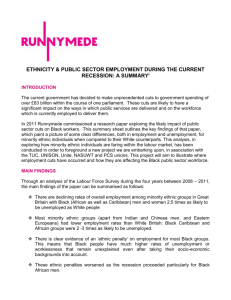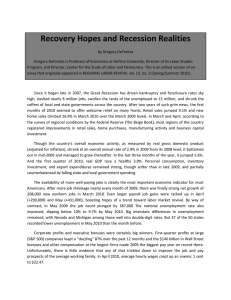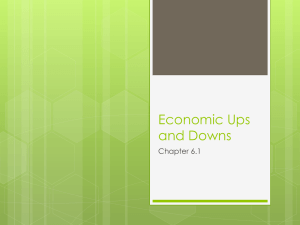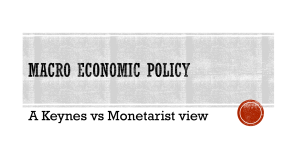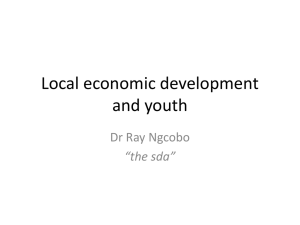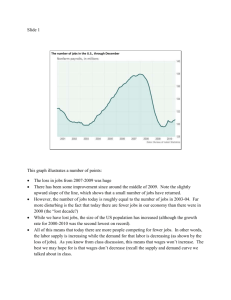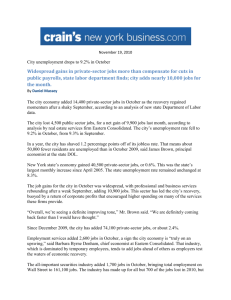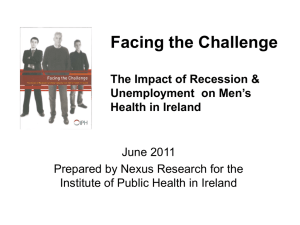Ethnicity and Public Sector Employment in Post
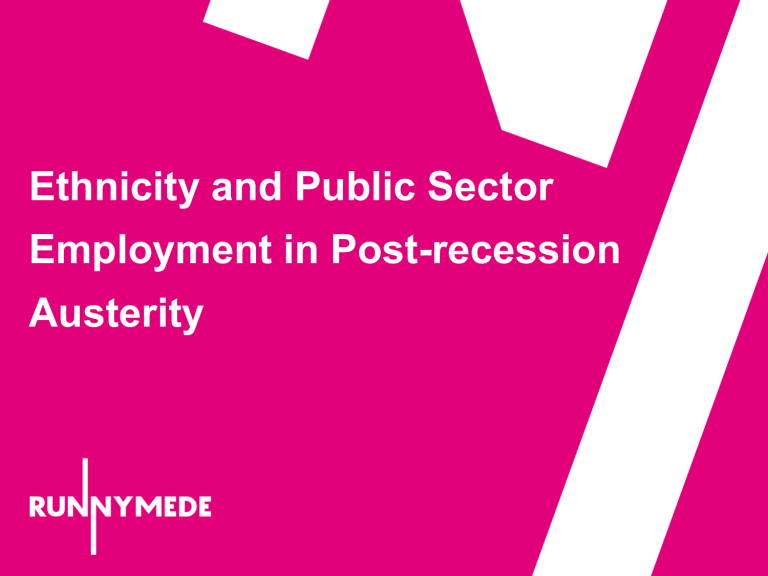
Ethnicity and Public Sector
Employment in Post-recession
Austerity
Overview
• The government is making unprecedented cuts to government spending of >£83 billion in one parliament.
• In 2011, Runnymede commissioned a research paper exploring the likely impact of public sector cuts on Black workers .
• The paper will foreground a new project with UNISON, the
TUC and other unions, which will illustrate where employment cuts have occurred and how they are affecting the Black public sector workforce.
• Through an analysis of the Labour Force Survey during the four years between 2008 – 2011 , the main findings of the paper can be summarised in the following slides.
2
1.
There are declining rates of overall employment among minority ethnic groups in Great Britain
• Most minority ethnic groups (apart from Indian & Chinese men, and Eastern Europeans) had lower employment rates than White British.
• Black (African & Caribbean) men and women were 2.5 times as likely to be unemployed as White people.
• 66% of Bangladeshi & Pakistani women not working at all.
• 2nd generation immigrants born and educated in Britain have similar unemployment rates to their first generation counterparts
3
2. Black groups experience an ethnic penalty in employment
• There is clear evidence of an ‘ethnic penalty’ in employment for most Black groups .
• This means that Black people have much higher rates of unemployment or worklessness that remain unexplained even after taking their socio-economic backgrounds into account.
• These ethnic penalties worsened as the recession proceeded, particularly for Black African men.
4
3. Cuts to public sector employment will have a major impact on BME workers
• Black African and Black Caribbean people in particular are concentrated in public-sector employment. Public sector cuts will have a negative impact on their livelihoods.
• Black workers in the public sector also experience differences compared to White workers in the hourly pay they receive, their access to professional & managerial positions and overall employment.
• For example, Black African and Black Caribbean workers in professional/managerial positions were badly paid.
5
4. The effects of recession and recovery
• Black unemployment has been found to be particularly high in times of economic recession in the
UK, such as during the mid 1980s and early 1990s.
• When unemployment rises during periods of recession, it begins earlier among Black groups and at its highest point, Black unemployment was 3 times higher than that for the rest of the population.
• When the economic situation begins to improve, it takes longer for the impact to be felt among Black groups, as unemployment remains higher for them for a longer period of time.
6
Contact
For more on this project, contact Debbie
Weekes-Bernard at: debbie@runnymedetrust.org
www.runnymedetrust.org
7
